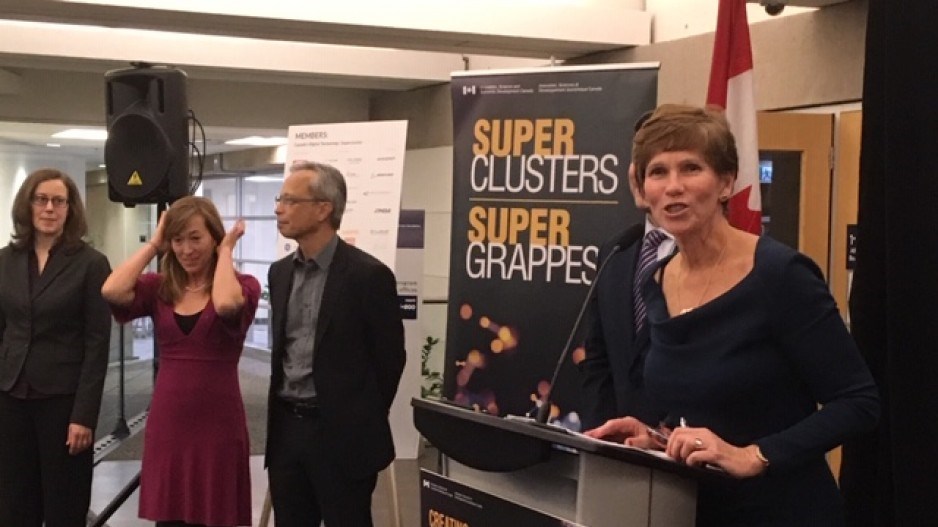What happened: Digital Technology Supercluster commits $60 million to efforts aimed at combatting COVID-19
Why it matters: Initiatives aimed at addressing everything from predicting pandemics to sharing important data globally
With health officials and political leaders cautioning Canadians a vaccine against COVID-19 is months — if not at least a year — away, one Vancouver-based initiative is tapping artificial intelligence to repurpose available drugs that could potentially treat pandemic patients.
The project, Rapid Repurposing of Drugs for COVID-19, led by Variational AI Inc. is among the early recipients of millions of dollars in funding the Digital Technology Supercluster is committing to combatting the pandemic.
The Vancouver-based supercluster revealed Monday (April 20) it’s earmarked $60 million from its $153 million budget to develop partnerships across its networks to address issues brought on by the pandemic.
This comes after Ottawa mandated on March 20 that the nation’s five superclusters reach out to its 1,800 members to come up with ways to tackle COVID-19.
Since then, the Digital Technology Supercluster is now reviewing 300 submissions from its 500 members.
That’s up from the 130 submissions that were under review when Business in Vancouver spoke to CEO Sue Paish about the supercluster’s efforts in late March.
The Digital Technology Supercluster has officially given four projects the go-ahead, including the Variational AI-led effort.
Variational AI CEO and co-founder Handol Kim said in a statement an effective therapeutic for COVID-19 may already be available.
“We’re using our state-of-the-art generative artificial intelligence to rapidly find the best COVID-19 therapeutics among all these approved drugs so they can be tested in trials and delivered quickly to improve patient outcomes,” he said.
The other three approved projects are:
· Feeding our Front Lines (led by Food-X Technologies): streamlined grocery management to help packing and deliveries for frontline workers and patients
· Lifesaver — Predicting emerging pandemics (led by Finger Food Advanced Technology Group): a platform using data from sources ranging from health authorities to weather services to better predict emergencies and deploy needed resources
· Beacon — Realtime global data sharing network (led by DNAstack): tool to help researchers search and discover mutations in genomes in real time in a bid to find new ways to diagnose and treat COVID-19 patients
The Digital Technology Supercluster already has $153 million earmarked from Ottawa to stoke private industry and post-secondary collaborations on digital products that can be commercialized.
Partner organizations must also contribute to the cost of developing such products.
The supercluster had 30 projects in the works prior to last month’s call from government.
The latest wave of projects stemming from the supercluster initiative follows that of the COVID-19 Supply Hub, a platform unveiled on April 1 that allows organizations to manage and source much-needed supplies and personal protective equipment (PPE) for frontline health-care workers.
The supply hub was built in seven days at a cost of $100,000, with Burnaby-based tech company Traction on Demand Inc. taking the lead on its development.
The supercluster itself contributed $40,000 to the quick development of the COVID-19 Supply Hub, while Traction on Demand covered $50,000 and San Francisco-based Salesforce.com Inc. (NYSE: CRM) covered $10,000.
Traction on Demand develops software that builds tailored marketing for brands using data gathered by the Salesforce.
Now that the COVID-19 Supply Hub is built, the government’s Provincial Supply Coordination Unit will manage the platform.
“We have been overwhelmed in the most positive way with responses from industry to solve the problems created by the COVID-19 environment,” Paish said.
“I am both impressed but not surprised that the Canadian business community and industry writ large has come forward to identify ways we can help Canada get through this.”




